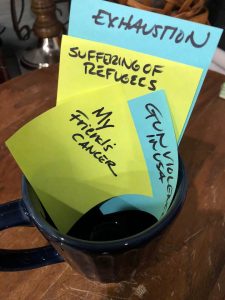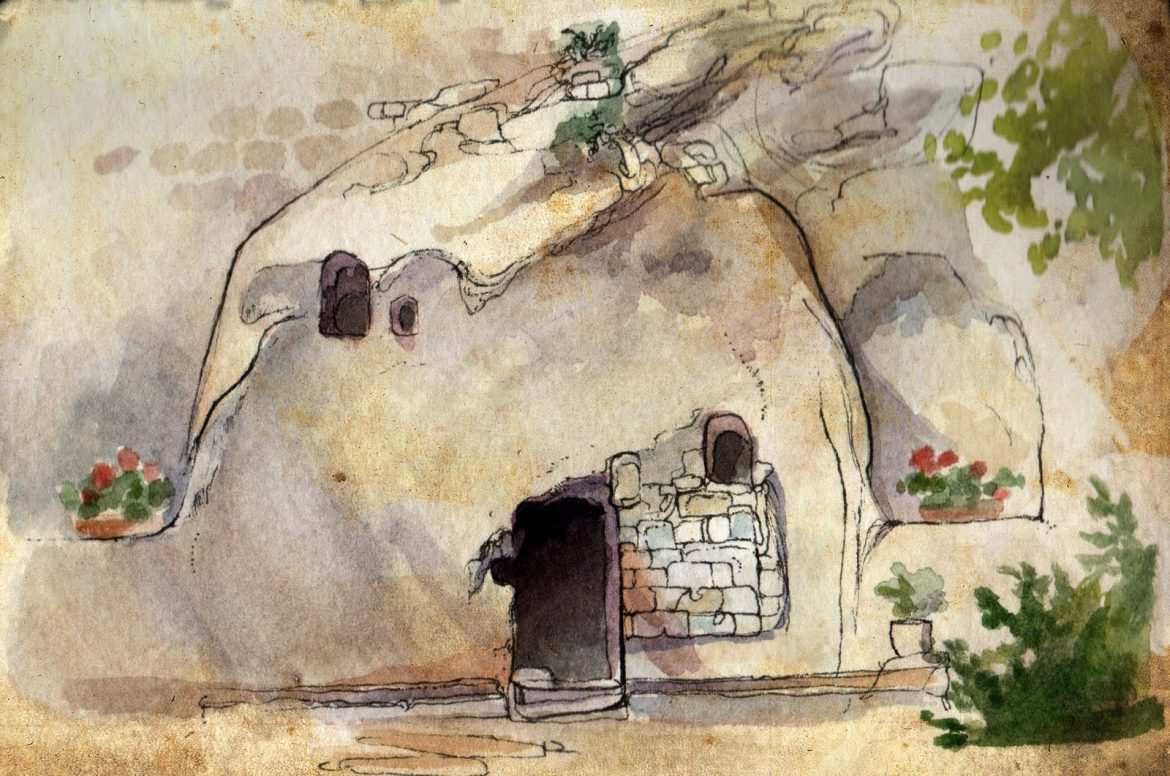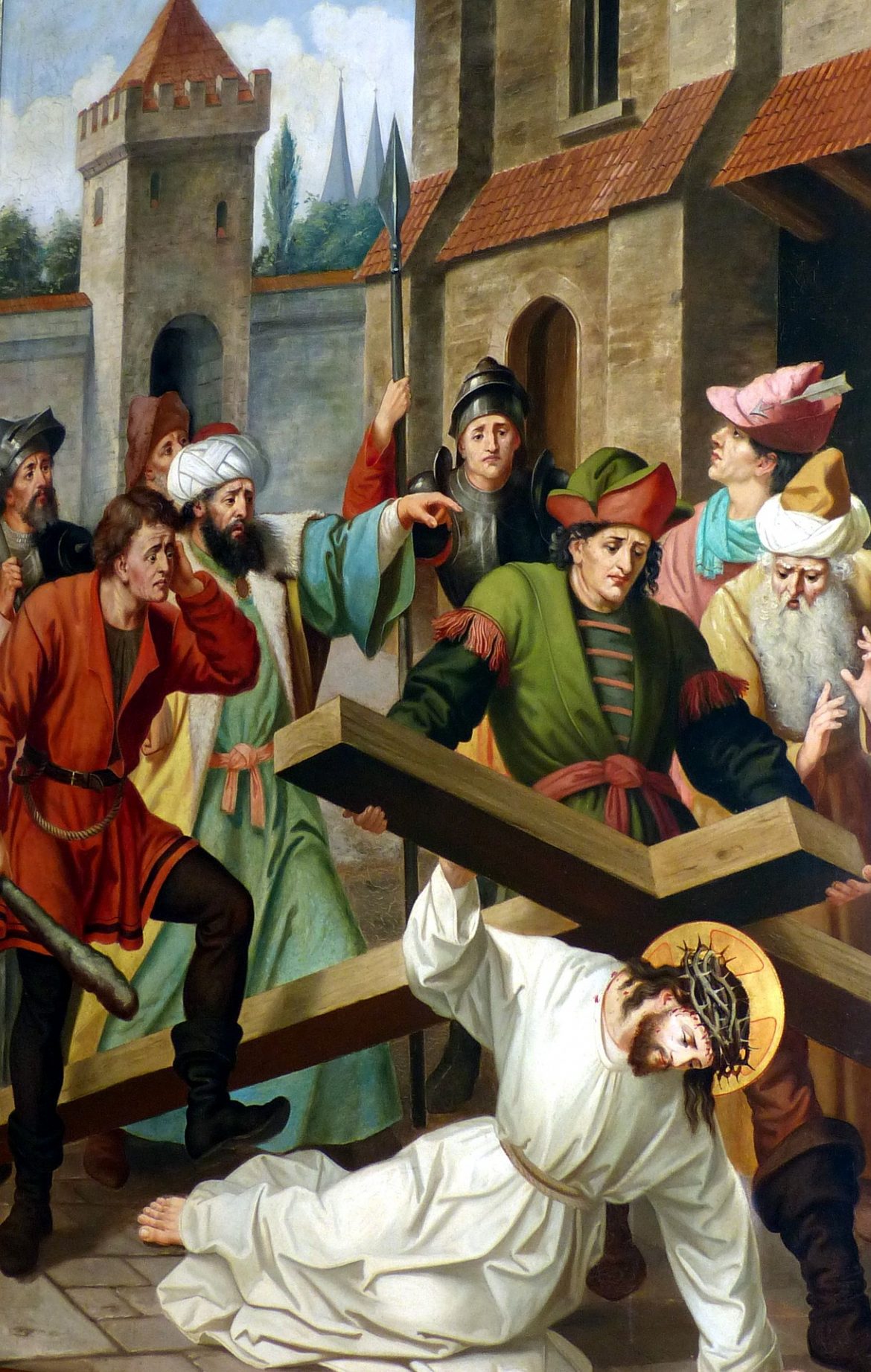Hidden deep within the mists of time, where our spiritual ancestors dwell yet within the stories of our diverse faiths and peoples, there leaps and peers and heartily laughs the most powerful archetype of human belief – the Trickster.
Imbued with the power to cross all prescribed social boundaries, the Trickster has the ability to shape-shift between communities, species, genders, generations, elements and perspectives. The Trickster’s ability to transform itself reveals the Trickster’s greatest power — to transform reality. Thereby, the Trickster is the catalyst for social change, providing creative insight to cultural visionaries who (guided by the Trickster’s unique brand of wisdom) discover the power within themselves to change the world.
Tricksters are reviled by those in power and, in the stories, are frequently vilified by those threatened by their message and their rebellious disregard for social conventions. Tricksters have a tendency to laugh with joy when what is carefully boxed up by the powerful few is freed for the entire world to gain. By those without social power, the Trickster is perceived as playful. By those who cannot comprehend its purpose, the Trickster is perceived as foolish. By those who have the most to lose if the Trickster is successful in its quest, the Trickster is perceived as cunning and incredibly dangerous.
Ultimately, if the Trickster is killed or dies, it then performs the greatest trick of all. The Trickster doesn’t do what it’s supposed to do — it doesn’t stay dead. Rather, the Trickster simply shape shifts, usually sharing the knowledge of transformation in such a way as to nurture and sustain the People. The Trickster is all about liberation, by setting human society on its head. Through a willingness to appear culturally foolish and risk its own current form, the Trickster is a both a force that destroys old ways of being while empowering the rise of new ways of being.
In many traditions of indigenous peoples, the actions of the Trickster are essential for connecting the human community with the Sacred. As a cultural hero, Tricksters (such as Coyote, Spider, Clown, and Raven) possess significant powers of transformation, resurrection, and strong medicine. Their powers mirror those of the Creator, to whom they are responsible and by whom they are empowered. Coyote of the Plaines Peoples releases the Buffalo (from one who keeps them all) so that all may hunt and eat. Raven of Southeast Alaska releases the Sun and Moon to bring light to the People. Spider of the Lakota connects their diverse People through language (communication), common ritual, and shared games. Among the sacred Clown dancers of the Pueblo Peoples, are those responsible for bringing rain to nourish the crops of corn and maintaining crop fertility – additionally, the Clowns critique the socially powerful as well as the status quo.
Trickster stories teach every generation about the power and necessity of transformation within the dynamics of society and Creation. Within the context of powerful social forces, Tricksters illuminate the collective urgency to strive for balancing the greed of the few with the need of the many, balancing the reality of loss with the urge for renewed life, and balancing societal oppression with culturally adaptive change for long term survival.
Examining the New Testament –particularly the stories of Holy Week – through the lens of the Trickster archetype reveals the ultimate power hidden behind the mask of Jesus (the Divine in human form). As a Trickster, Jesus is a challenge to social order and form, a danger to many, a destroyer of old ways and old powers, and a life giving force that has been set loose by the Creator to transform the world, free the People and cultivate new life.
In keeping with the characterization of Tricksters as “foolish,” even those closest to Jesus wish he would shut up about his apparently defeatist preoccupation with his impending death. Rather, to them, Jesus is supposed to fulfill their traditional beliefs of what a Messiah was said to be. For many of his followers, Jesus is potentially an insane embarrassment, even a disgusting excuse for the anticipated, all-powerful Anointed One of God. As the Messiah, Jesus was supposed to bring about social change and freedom through violence, war, and death to the enemy. However, instead of wielding a flaming sword of judgement and retribution, Trickster Jesus comes, instead, with very strong spiritual medicine – the ability to bridge diverse peoples and perspectives, the ability to heal bodies and communities, the ability to provide vision, the ability to set ALL people truly free through the transformative power of love.
Trickster Jesus leads his People on a journey to Jerusalem, which most of his followers believed was a journey towards their own deaths, a fool’s errand, a pilgrimage to nothing. They were led by a man whom they loved but in whom they no longer actually believed. Yet, there’s the Trickster power revealed to us – love! They went into Jerusalem, because they were motivated by love for a man who had become their friend, in whom they had entrusted their greatest dreams and who loved them because of their inescapable human weaknesses. Even as with each step they entered into the darkness of their fears, they also tread upon that road for the sake of love, towards a seemingly unavoidable meeting with death and defeat.
Drawing attention to himself by entering the Temple Mount, turning over the tables of the money changers, challenging traditional practices and centuries of belief, shaking a verbal fist the corruption of societal powers was all so very, very foolish. Yet, the foolishness of love would prove to be the far greater power, which even Jesus’s diverse community of friends did not expect.
Trickster Jesus broke the hearts of those who followed him, because those hearts needed to be broken – their hearts had been as hard as stone (no more receptive than those who oppressed them). The story of the rolling away of the stone from the tomb, to find it empty, is itself a symbolic narrative of how the human heart must be resurrected from its stony emptiness in order to find true life outside of itself. Only from having encountered our own emptiness through such a truthful vision are we made ready to be filled with the light of God’s love, for all the world to see – that there is no death within us.
If the light of God’s love dwells within us, then we, who would be Christ’s body in the world, are called to illumine the light of Divine Compassion upon the world through the lamp of our own eyes. As Christians, each of our unique and diverse faces simply serves as a mask for Trickster Jesus, who yet dances and teaches and heals and weeps and laughs in the market places and streets of a hungry and wounded world, which is yet so very beautiful and precious in the eyes of God.
Every person who chooses to follow Christ must reflect that they are choosing to follow a Divine Fool and that each of us is being called through the power of God’s love to be foolish, too. We must not be like those who live in the world to gain social power for our own sake, to gain material wealth at the heedless expense of Creation, to contribute to the alienation and marginalization of other peoples and species. Rather, our Trickster Jesus winks at those who thought him dead once and for all. He winks at corrupted power every time we help someone one need, on each occasion we use our voice for those who are silenced, and in every moment we respond to division with the strong medicine of understanding.
The human community is only genuinely foolish and assures its own demise when it does not yield to the Divine Wisdom of the Trickster, who did not come into the world to condemn the world but to save it. We must be prepared to be seen as foolish, to be perceived as a danger to the unjust status quo, to be ridiculed for our apparent naiveté and our collective vision of a God’s Kingdom. For the Fool’s Followers, how the world could be and ought to be resides within us as a blueprint etched upon our souls, like some kind of spiritual DNA that we are driven to create and to build and to make real through our societal relationships and global connections. Whenever we communicate the power of love and peace in the face of powers of hatred and war, we speak the Word of God. We heal what is wounded. We bridge what is divided. We reveal what must be seen. We give new life to those who believed themselves dead. We transform the world – one moment, one life at a time – just as our spiritual ancestors did. With them, let us go to Jerusalem, as fools for our love of Christ.
This April 1st, Easter Day, we again behold the empty tomb. We know that Trickster Jesus is not to be found there. He has shape shifted into another form.
He is us.
by Lilly Lewin
How are you doing on this Holy Saturday?
Are you burned out by all the activities of Spring….holiday trips, sports, meetings.
Are you tired from all the service preps you’ve had to do for Holy Week to happen at your Church?
Are you still getting everything ready to make Easter happen for your friends and family? cooking, baking, cleaning etc.
Are you frustrated by the brokenness in our world and suffering around you?
This week, I’ve been using my coffee cup as a prayer tool to remember the events of Holy Week.
The Cup of Praise on Palm Sunday
The Cup of Extravagance for the Anointing at Bethany
The Cup of Change for cleaning out the Money Changers
The Cup of Betrayal for Judas and Peter.
The Cup of Remembrance on Maundy Thursday.
The Cup of Suffering of Good Friday.
Now we are at Holy Saturday…and my cup is empty. Like the Disciples, I feel a bit like hiding. I too am feeling the tears of Good Friday and not the cheers of Palm Sunday. I too have poured out more than I have taken the time to refill. My cup is EMPTY.
The EMPTY CUP
HOLD an empty cup today.
Consider the things that make you feel empty.
Fatigue, Burn out, Brokenness, Injustice, Fear, Anxiety , Illness.
What else?
What expectations have been unfulfilled?
What has disappointed you?
What things have left you empty?
What things have caused you sorrow?
What loss have you experienced this year?
What are you grieving today? Broken dreams? Broken relationships? Broken systems in our country that cause injustice?
Hold your empty cup
Feel it’s weight.
Notice the emptiness.
Talk to God about the emptiness, the loss, the sorrow.
Imagine that loss, sorrow, fatigue, brokenness , grief, anxiety filling this empty cup.
Allow God to have this cup.
You might even write down these things and put them into your cup and then give them to God to hold for you.
Place your cup in a the LIGHT. LET JESUS, LET GOD, hold your cup.
And don’t forget, this is the Sabbath; take some time to rest and allow God to restore you and get ready for a new day.
Listen to Andrew Peterson’s song

By Emily Huff —
Our family has been in a season of waiting for a number of years for God’s answer regarding our direction with work and calling. As we have prayed as a family for a new path, I’ve been thankful for prayers that remind me that this is in God’s hands, for prayers for a place to flourish, prayers for God to open the right door, and prayers for reassurance of God’s love throughout the journey.
It’s been said to me that we are experiencing a “Holy Saturday” through this waiting- the time in between the cross and the resurrection when Friday’s over but Sunday has not come yet.
This has been a longer road than expected. As a runner, I’ve compared this season to running a race that turned out to be more mileage than I signed up for. If I were told that I would be running a mile but then were told midway that I’m actually to be running a marathon, I would feel exasperated and weariness would set in. This “race” has had some bumps along the way, but we’ve seen grace show up in life in all its messy glory. While wrestling with God and crying out again and again for a new song to sing (Psalm 40), we’ve also seen God’s provision and faithfulness over and over.
As spring is just about to bloom here in Seattle, I look at the tulips and daffodils that are trying to make their grand entrance. These bulbs have been underground for a long time, and I’ve wondered if they are truly going to find their way through the dirt. It’s felt foolish to hope at times for things we are waiting for, but my brother-in-law told me that the word for wait and hope in Hebrew is the same in Isaiah 40:25-31. I am reminded that there is more going on that I cannot see, and I firmly believe God has been cultivating trust in our hearts.
Wendell Berry shares this wisdom, “We live the given life, not the planned.” This is not the path we would have chosen. Though this season, we’ve had a lot of practice trusting when we can’t see the whole picture. In some ways, it feels good that our faith muscles seem to be getting stronger as we are developing resilience and grit we did not have before. We have been able to stand back and celebrate the showing forth of God in unexpected places while also still asking, seeking and knocking the best we know how.
Theologian and professor of piano Jeremy Begbie says, “Music teaches us that just because there is silence doesn’t have to mean the silence is empty of void.” Music (and life, for that matter) need pauses. Holy Saturday at times seems like an unnecessary pause. I want to grieve on Good Friday and then to jump right to Easter morning for the celebration. However, the space in between can have a lot to teach us. While these pauses and turns in the road may be unexpected and even unwelcome at times, they can be filled with meaning and purpose.
So, as you find yourself in your own rendition of your “Holy Saturday,” may the roots of your faith grow deeper as you place your hand in His and keep running the race.
By Faith Eury Cho —
We call today Good Friday.
It is the day that commemorates the unfair treatment of our King. It is the day that remembers His betrayal, from His closest friends. It is the day when the world allowed Him to be wrongly accused. His reputation – trampled. His name – tarnished. His body – torn apart.
And yet, we call it good.
Usually when the Bible calls anything good it is when referencing the things of God and from God. Before sin invited a great curse upon our land, everything was good (Genesis 1-3). It was fruitful and whole. Nothing was broken. There was no suffering or pain. It was good.
Temptation is when we are faced with a possible redefinition of “good.”
The snake approached Eve with a new perspective. It says in Genesis 3:6, “When the woman saw that the fruit of the tree was good for food and pleasing to the eye, and also desirable for gaining wisdom, she took some and ate it…”
The fruit was useful, beautiful, and pleasurable. It was everything that one would want for one’s life. To Eve, this became good.
The spoiler alert of this story is that there is nothing good apart from God. The beauty of the Garden was not in the way that it perfectly served Adam and Eve’s every need and desire. Rather, its beauty came from the Presence of God. It was a place where God’s Presence was so close that they could hear Him taking a walk in the cool of the day (Genesis 3:8). God was in charge of this garden. That’s what made it good.
There are times, when my life as a minister and mother of four becomes overwhelming. Sometimes, the day doesn’t go as planned. Although there is much joy, there is also much pain. Once in a while, when someone asks me how my life is going, I take a brief moment to make an honest assessment. Occasionally, my response could easily be “too much,” or “unfair,” or “discouraging.” When circumstances are not easy or people are burdensome, the way I could easily describe my life is “not good.”
Yet, in moments like these, I make sure to take a second look into my life. Once I do, I see God’s gentle hands over every minute detail of it. I see the way He takes difficult situations and use them for His glory. I see how He brings victory into my battles, even in ways that I may not recognize at first. Sometimes, pain blinds us from seeing God in the midst of our lives. The way to heal that is gratitude. Gratitude reopens those blind eyes.
I am sure it was painful to watch Jesus on the cross on that fateful day.
His skin dangling around His wounds…
Thick blood dripping all over his face…
The smell of open flesh…
The torment in His groans…
The harsh, splintered wood that He hung on…
It was cruel and devastating. But, it was good – so very, very good. God was enacting justice in the midst of this injustice. His love for us was ever so palpable, even in this scene of hate. This execution is so good that it is forever a sign of pure love. The wood that His body hung on is now dangling as symbols around our necks, on the walls of our churches, and as bumper stickers on our cars.
There is no amount of pain that the world can inflict upon you that the goodness of God cannot overshadow.
It is this very reality that encourages us to see beauty in all seasons of life, whether easy or difficult. Therefore, next time there are things like loss, pain, or persecution, we know what to say if someone were to ask us how life is going.
It is good.
It is very good.
By Joy Lenton —
It’s Good Friday. We see Jesus: already battered, bruised and torn, making His stumbling progression to Calvary. He’s always been the One and only Son of God. He is also Chief Cornerstone and Shepherd of the flock. He is our Door and Way to Father God.
 En route, He has made enemies. Not everyone understood His true identity or wanted a part of the Kingdom of God He preached. He also spoke to crowds hanging on His every word. Many witnessed miracles and fell at His feet. He was revered by those who loved Him and anointed with pure, fragrant nard in honour of His burial to come.
En route, He has made enemies. Not everyone understood His true identity or wanted a part of the Kingdom of God He preached. He also spoke to crowds hanging on His every word. Many witnessed miracles and fell at His feet. He was revered by those who loved Him and anointed with pure, fragrant nard in honour of His burial to come.
Jesus had bowed low, washing the disciples’ feet as Servant of all, warning them of what lie ahead and what to expect. They could barely comprehend what He said or why He, their Lord and Master, would demean Himself in this way.
One of His own betrayed Him with a kiss by selling his own soul for 30 pieces of silver. Jesus was arrested by Roman soldiers, flogged with 39 lashes, his skin flayed to ribbons, and treated with sheer cruelty and derision by those who saw Him as nothing more than a deluded individual, a menace to authority and a rebel who spoke as though he were a god.
Skies darken now and soon the bloodied, thorn and sword pierced, cross-nailed Man of Sorrows will exhale His last breath, willingly surrender Himself into the Father’s hands. Jesus will take the final step He came to earth to make. To die for our sin and for our sake. To set the captives free and restore us back to the Father’s side for eternity.
It’s the culmination of a journey the Messiah has made as Son, Shepherd and Servant-King. Before long, He will break free from the tomb in which He is laid, rise as our Saviour, ascend back to heaven’s glory and be recognised as God and Lord by all who place their faith and trust in Him. Hope awaits on the horizon…
Son, Shepherd, Servant, Saviour
The Holy Son who walked
in harmony close beside
Father God, cloistered now
inside an earthly frame, walks
as deity in human dust
and demons tremble at his name
The Shepherd of the sheep
made weak, becomes our
Lamb for the slaughter—now
cross-fodder—bleeding red
for every son and daughter
The Servant of all mankind,
humbled and humiliated, is
thrown now to dusty ground,
rejected and reviled by those
He came to love and save
The Saviour, risen Lord,
now ascended and adored
draws all mankind to him,
provides an open door
because he bore the full
penalty for our sin
©joylenton
“We must keep our eyes on Jesus, who leads us and makes our faith complete. He endured the shame of being nailed to a cross, because he knew that later on he would be glad he did. Now he is seated at the right side of God’s throne!” – Hebrews 12:2 (CEV)
**you can discover the meaning, history and etymology of Good Friday here**
As an Amazon Associate, I receive a small amount for purchases made through appropriate links.
Thank you for supporting Godspace in this way.
When referencing or quoting Godspace Light, please be sure to include the Author (Christine Sine unless otherwise noted), the Title of the article or resource, the Source link where appropriate, and ©Godspacelight.com. Thank you!







